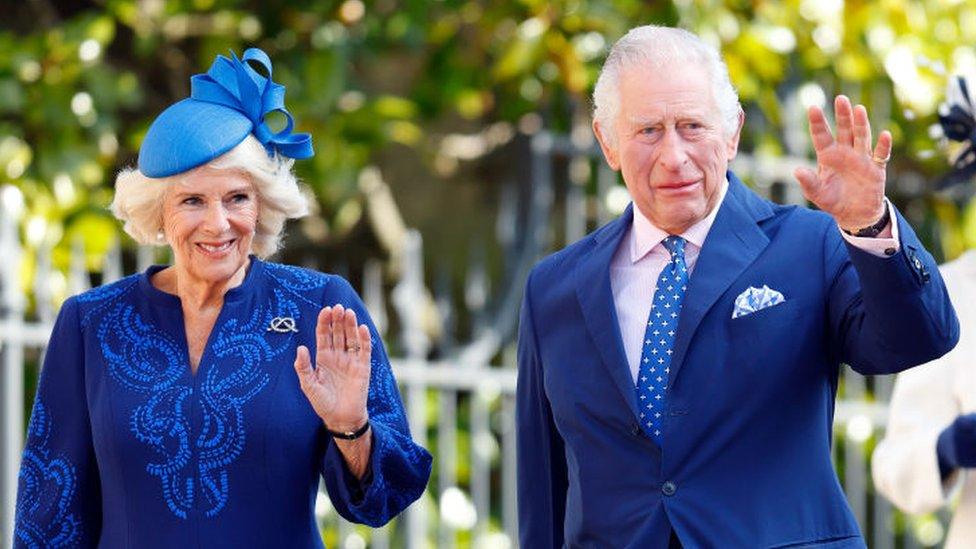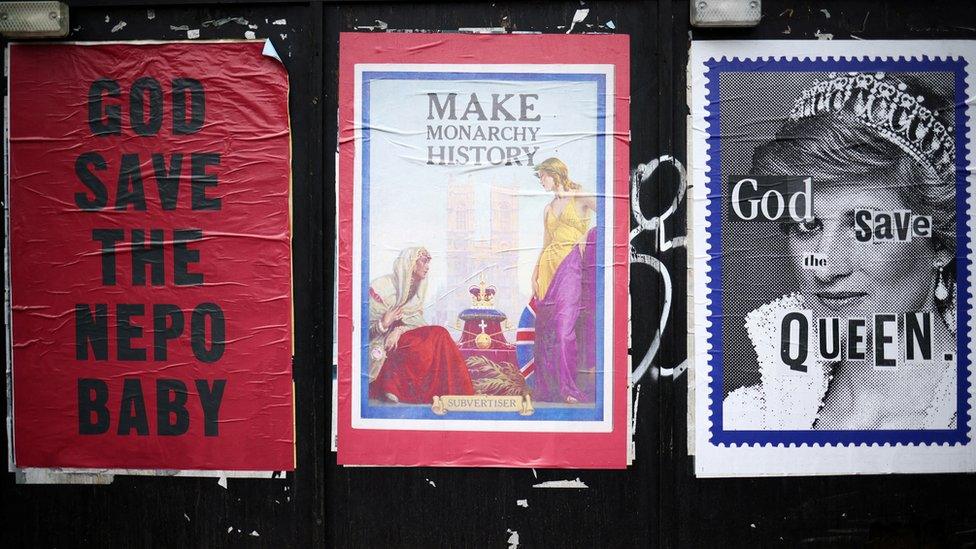Monarchy debate: Valuable tradition or unfair wealth?
- Published

The monarchy has kept the support of the majority of people, according to the most recent polls
A venerated tradition or a pointless expense? A symbol of continuity or a symbol of inherited privilege?
Debates about keeping or scrapping the monarchy can become like arguments over religion.
People's views are often more about their instincts and identity, family and feelings, rather than anything that could be called evidence and put into a spreadsheet.
So the BBC Radio 4's Today programme debate on "Do We Need a Monarchy?" offered snapshots into these competing world views, serving up a pundits' version of roundheads versus cavaliers.
Lord Charles Moore, former Daily Telegraph editor, spoke of the monarchy as an essential "guarantee of legitimacy" that underpinned the democratic system in a way that was politically neutral.
Whereas Polly Toynbee, Guardian journalist, said it was a symbol that sent all the wrong messages at a time when "social mobility is going backwards".
Billy Bragg, left-wing singer-songwriter, put forward Gary Lineker as a potential alternative monarch.
The musician's criticism of the current arrangement was the way the monarchy was still intertwined with the law-making process. Instead he wanted a monarchy restricted to a ceremonial function, but was "completely out of the constitution".
Cambridge University sociologist Prof Jason Arday said the "elephant in the room" was that so many people were struggling financially and that the royal wealth could be redistributed.

Anti-monarchy posters on a wall in London
Lord Moore said the practical impact of such a handout would be "tiny" and presidential systems such as France still had heads of state living in grandeur.
Times columnist Juliet Samuel said any reclaimed royal money would disappear into state coffers and an object of "huge affection" would have been lost, without much to show for it.
"The monarchy and its rituals and its dramas and events, and the way it marks time, provide us with a collective experience," she said.
The debate comes as the Coronation approaches, but also at a time when there are increasingly visible anti-monarchy protests.
A survey for BBC One's Panorama programme this week showed broad support for the monarchy, backed by 58%, but with a sizeable minority, 26%, preferring an elected head of state.
There was particular scepticism about royalty among the young, with only 32% supporting the monarchy. Perhaps more corrosive was the level of indifference, with 78% of young people "not interested" in the Royal Family.
But it's worth putting such figures into a longer-term context. Polls for the past 30 years have consistently shown about a fifth of adults preferring a republic. It's not a dramatic change now, but perhaps a mixture of the new reign and the wider reach of social media have increased the impact of those against the monarchy.
Prof Arday said there was "less sense of deference" to the monarchy among the young, but he had seen a "collective sense of grief" in response to the Queen Elizabeth II's death, which suggested the monarchy's capacity to unite people if it could modernise enough to connect with them.
Lord Moore argued that the monarchy brought a greater stability to the democratic system, but Toynbee said it was the opposite and that it was profoundly anti-democratic to "bring up children to worship the idea of a sovereign".
Bragg warned that the biggest threat to the monarchy was if it was dragged into the culture wars, full of polarising anger, which could destroy its popularity.
It could end up, said the Bard of Barking, with King Charles being accused of being "too woke for his own good".

